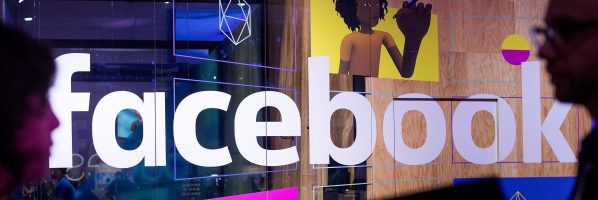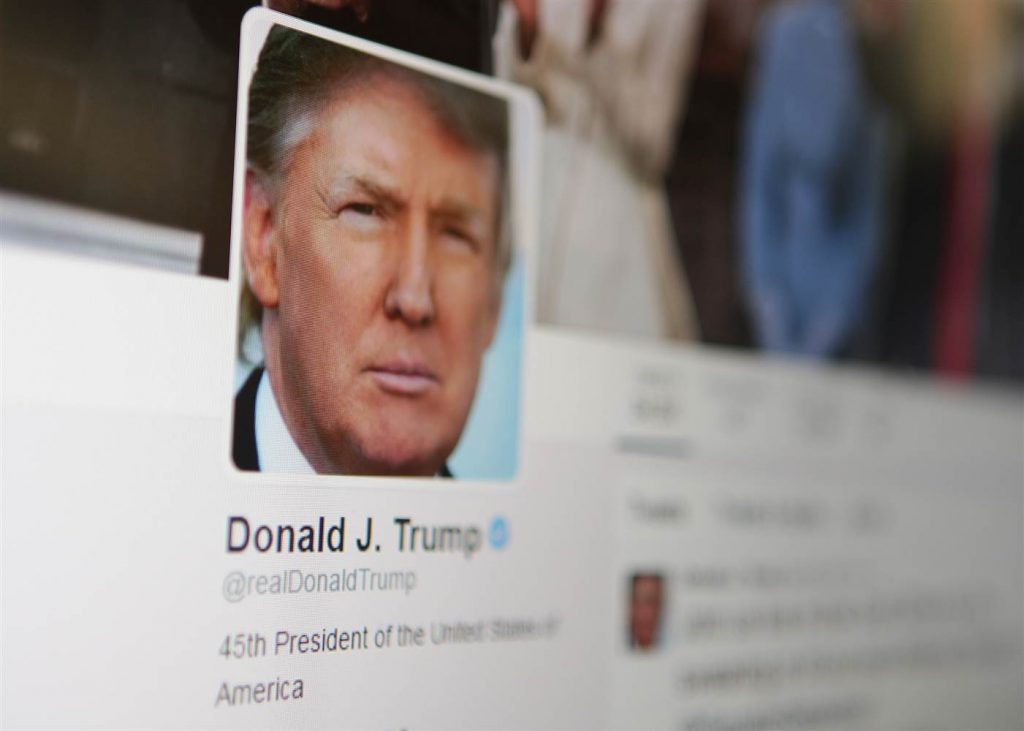New Kellogg Study Reveals Common Entrepreneurial Traits

When most people think of the “ideal” entrepreneur, they picture someone like Mark Zuckerberg, an individual who is young, ambitious, and nonconformist. They imagine someone who is eager to change the status quo. We tend to mythologize these young disrupters as the consummate startup founder with these common entrepreneurial traits.
However, a recent research study from Northwestern University Kellogg School of Management has revealed that’s not the case at all. The reality is that most successful entrepreneurs are actually middle-aged, have extensive experience in their industry or sector, and their serious innovation arises from the result of their deep experience.
Entrepreneurs Are Knowledgeable
“Those with industry experience are much more likely to hit a home run than those who come from outside the sector,” explains co-author Benjamin F. Jones, Professor of Strategy and Entrepreneurship. He goes on to say, “If you’re familiar with the ins and outs of an industry, having worked in it, and you have a strong professional network, your odds of success are greater.”
Most successful entrepreneurs have to know the products, customers, suppliers, competitors, and channels of distribution well. They have to know what works and what doesn’t.
For example, Ray Kroc gained years of experience in the restaurant industry before he experienced his breakthrough success with McDonald’s. The same goes for David Duffield, the founder of PeopleSoft. He began his career understanding the nitty-gritty details of the software industry before he made his innovations.

Entrepreneurial breakthroughs mostly happen to people in their 40s, like David Duffield, founder of PeopleSoft, according to new Northwestern Kellogg entrepreneurship research.
“I’ve studied age and creativity for a while, and there’s a pattern of Nobel Prize winners, inventors, artists, and innovative minds making breakthroughs in their 40s,” Jones says. “I don’t think it’s an accident that we see the same pattern in business. These are people who have been around for a while and seen what works.”
Entrepreneurs Learn from Every Experience
However, it’s just working knowledge of their industry that leads to entrepreneurial success; it’s the ability to learn from every experience. Successful startup founders need a combination of education, experience, and specific market knowledge to get their innovations off the ground.
There’s also a need for entrepreneurs to have access to an extensive network so that they can learn from those around them. Most founders work within their social networks to facilitate creation and to get their ventures up and running.
Entrepreneurs Try Again and Again
Finally, there’s the law of batting averages. The more chances an experienced entrepreneur takes, the greater the odds are that one of their opportunities will be successful. Not everyone is willing to keep trying even after a list of failed ventures. For example, Ray Krock was in his fifties before McDonald’s became a success. Before that, he struggled to get any of his ideas to take off.
“It’s a matter of probabilities,” Jones explains. “Those who study their industry and pay close attention have either learned some things through trial and error themselves, or learned by watching others. Maybe failure itself is a useful instructor. Or maybe it’s just about having more swings of the bat.”
You can read the full article on Kellogg Insight.
This article has been edited and published with permissions from its original source, Clear Admit.
Are Companies Getting Big Data Wrong? – New York News

Let’s explore some of the most interesting stories that have emerged from New York business schools this week.
Columbia Business School Researchers Argue Future of Big Data Lies in Its Ability to Assess Consumers’ Mindset in Real Time – Columbia Business School News
Columbia Business School professors Sandra Matz and Oded Netzer recently published a new discussion paper in the Current Opinion in Behavioral Sciences in which they “address the challenges and opportunities of using big data to benefit both business and consumers based on psychological profiles drawn from information posted on personal websites and discussion forums, and language used on Facebook and Twitter.”
Netzer writes, “Big data usage is quickly evolving. With technological advances in the collection, storage and analysis of large amounts of data, businesses can now gain valid insights on millions of consumers as they go about their daily lives.”
Matz adds, “One benefit of psychological profiling is that the pre-selection of ads based on psychological needs can alleviate the problem of choice overload. It can even help target highly neurotic individuals who display early signs of depression with ads that guide them to self-help pages or offer professional advice.”
You can read the full article here.
When Students Come First – BizEd
According to the National Center for Education Statistics, upwards of 30 percent of freshman in higher-education in the United States are the first members of their family to do so. However, there is also a direct correlation to dropout rates: first-gen students have a dropout rate that is four times that of non-first generation students. The research also found that only 11 percent of the first-gen students manage to secure a Bachelor’s degree within six years.
The statistics find that the reason for the dropout rates has less to do with personal decisions, and more with the “lack the financial, social, and emotional support they need to navigate college successfully,” says BizEd writer Tricia Bisoux. Several schools, including the Rutgers Business School in Newark and New Brunswick, have altered the way they approach its first generation students.
“At Rutgers Business School (RBS) at Rutgers University in New Jersey, the key to supporting first-generation students is a suite of programs called RBS-PLUS (Pathways Leading to Undergraduate Success), launched in 2013. Delivered through the business school’s office of diversity, RBS-PLUS doesn’t just support its current first-generation and low-income undergraduates. It also reaches out to high school students to offer guidance just as they’re beginning their college preparation.”
You can find out more about the program here.
Facebook Is an ‘Extraordinary Failure in Leadership,’ NYU’s Galloway Says – Bloomberg
NYU Stern Marketing Professor Scott Galloway recently stopped by the Bloomberg television studios to talk about the ever-tumultuous Facebook galaxy, dishing out some heavy criticism of Mark Zuckerberg and the tech-giant company as a whole. Watch his interview with the Bloomberg panel here.
What They’re Saying: Zuckerberg Testifies Amid Facebook Scandal

Earlier this week, ultra-rich and seemingly malnourished social media monolith Mark Zuckerberg testified before a continually befuddled U.S. Congress about the Facebook scandal regarding the private information of its unwary users.
However, despite getting turned into a plethora of memes during his time in Washington DC, it’s patently unclear what, if anything, will come as a result of the testimony, in which Zuckerberg said that data was even coming from users who didn’t actually have their own Facebook accounts.
Zuckerberg’s appearance before Congress came within the short window of time in which Cambridge Analytica—the other company embroiled in ongoing Facebook scandal—watched as its CEO Alexander Nix stepped down from his role. Check out how business schools are reacting to the recent news below.
In the first of two Congressional hearings this week, @finkd made no promises to support new legislation or to change how @Facebook does business, despite recent data breaches and controversy. https://t.co/72Xuv4DUge @ReutersBiz.
— MIT Sloan Experts (@mitsloanexperts) April 12, 2018
When I opened my file, it was like opening Pandora’s box. (Via @nytimes) https://t.co/VQl9Diu3pM
— MIT Tech Review (@techreview) April 12, 2018
Marketing and Strategy Professor Tim Derdenger talks with @Marketplace @Erika_Beras about the fallout from Facebook’s mishandling of user data and impact on other advertising revenue business models, like Google #TepperFaculty https://t.co/C30HJNX69T pic.twitter.com/74lOiPxOWH
— Tepper CMU (@teppercmu) April 11, 2018
.@profgalloway discusses the controversy surrounding #Facebook via @bsurveillance. Listen here: https://t.co/Yy9i9NQNKv
— NYU Stern (@NYUStern) April 11, 2018
Why was protecting data not a top priority at Facebook before the Cambridge Analytica scandal blew up? “This probably reflects on managerial experience” suggests @Wharton’s David Hsu https://t.co/vBXafqKdGW
— Knowledge@Wharton (@whartonknows) April 7, 2018
Boston News: Northeastern Explores Trump Tweets, MIT Offers FinTech Advice and More

Let’s explore some of the most interesting stories that have emerged from Boston metro business schools this week.
Can A Trump Tweet Dramatically Sway A Company’s Value? – Northeastern’s D’Amore-McKim Blog
Will Clark, DMSB ’17, along with Northeastern University D’Amore-McKim School of Business finance professors David Myers and Jeffery Born, sought to understand the impact that President Trump’s tweets—which often directly address publicly traded companies like Ford, Toyota, Walmart, GM, and Boeing—had on their stock market value.
“Past presidents communicated through the media. This was the first time that a president was communicating directly with the public—with investors—about companies. We really weren’t sure what to expect from the data,” says Clark, who is now a credit analyst with Morgan Stanley.
The trio’s research found that Trump’s tweets, in fact, did have some impact on companies, often increasing trade volume within the first few hours and days after he references them on the social media platform. The research was revealed in the academic journal Algorithmic Finance.
“The team found that Trump’s tweets dramatically increased trading volume for the companies’ stocks in the first few days following a tweet. They also found that positive (or negative) tweets about companies increased (or decreased) the firms’ stock prices by a modest amount—just 1 percent. But the changes were only temporary: Within a few days, the firms’ trading volumes and stock prices returned to pre-tweet levels.”
The lasting effect, however, was found to be longing. The trio notes that the most active traders, which they refer to as “noise traders,” were very reactive to Trump’s words, with trading tapering off after only a few days.

“They’re regular people and under-informed investors who want to get in and out and make a buck without thinking too long and hard about it,” Born notes about the financial impact of Trump tweets.
You can read more about the financial research on the Trump tweets from D’Amore-McKim here.
3 Lessons To Keep In Mind When Starting A FinTech Venture – MIT Sloan Newsroom
MIT Sloan School of Management MBA alum Sophia Lin, ’12, and her partner Andrew Kelley of the FinTech startup Keel, which connects “rookie investors with more seasoned ones,” shares some hard-won lessons in an op-ed for the Sloan blog. First of all: beware of hidden costs specific to FinTech. “
“Starting costs are higher than other industries because of data, infrastructure, and security requirements,” Lin said. “Data is expensive, which stops a lot of early stage startups from entering this field. But you need data to build your product.”
Read all of Lin’s words of wisdom here.
More CEOs Have Begun To Take Social Responsibility Seriously – HBR
CEOs from Facebook’s Mark Zuckerberg to Blackrock’s Larry Fink have begun to take very public stands to address the long-term impacts their products have had and continue to have on communities and the environment.
“We are witnessing a big, transitional moment—akin to the transition from analog to digital, or the realization that globalization is a really big deal. Companies are beginning to realize that paying attention to the longer term, to the perceptions of their company, and to the social consequences of their products is good business.”
Harvard Business School John and Natty McArthur University Professor Rebecca M. Henderson also explains that there are distinct differences between the size of a company, which often contrasts with the social goals of the company. The larger the company, the more long-term the outlook, she explains. Unlike small companies, larger firms worry about quarter-to-quarter results less.
“Big firms can also internalize certain externalities. An externality is a cost from a transaction that doesn’t fall on the buyer or the seller. If I pollute the air to make a product I sell to you, the cost of that pollution is spread out across society, and isn’t incorporated in the price I charge you for the product. Externalities pose problems for markets, since neither buyer nor seller have any incentive to deal with the costs. But sometimes, for really large firms, things work differently.”
The unfortunate causality, she notes, is that we are often reliant on the largest companies to take the initiative for causes that may be considered part of the global good. If some companies among the Fortune 500 elect to, say, go carbon neutral within the next decade, that can have a profound impact on other competing companies. And if those initiatives are not as profitable, there is an even greater risk of other companies being reluctant to attempt similar efforts.
Read more about the growing CSR trend among CEOs here.
Harvard Looks At Facebooks Attempt to Take on Fake News

The amorphous impact social media has had on the collective social conscious, especially since the 2016 U.S. general election, has become a striking waypoint of how we all may interact in the near future. To potentially combat the negative outcomes of it, Facebook has crafted plans to transform its platform into a forum for “more meaningful social interactions,” even if it comes at a great cost to its founder, Mark Zuckerberg. Experts from Harvard Business School recently discussed the potential changes.
Berkeley Book Discusses Leadership And Strong Personalities

“Who you are shapes how you build.” It’s the informative, overarching message from a pair of Berkeley Haas School of Business fellows in their new book Built For Growth, which explores how the personalities of successful entrepreneurs inform their empires.
